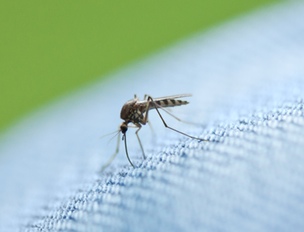
This week, the DC Department of Health confirmed its first human case of West Nile virus, adding to the alarming rate of reported cases in the country. In fact, the US has approximately 1,118 reported cases of the virus so far this year, making it the highest number of West Nile cases since it was first detected in the country in 1999, according to the Centers for Disease Control.
Fortunately, Washington is far in numbers and miles from Texas, where half of all cases have been reported. Still, it’s worth knowing what to look out for and how to prevent the virus, which has caused the deaths of 41 people this year alone.
We asked Dr. David Parenti, a professor of medicine, microbiology, immunology, and tropical medicine at George Washington University, to break it all down for us.
According to recent reports, Texas has about half of the West Nile virus cases. Can you explain why that particular area has the most cases?
If you look at the yearly maps of where the cases for the West Nile virus are each year, it started in the Eastern seaboard and moved West very quickly. But why it’s mostly out there and why it hasn’t really accelerated back to the East Coast isn’t clear. It’s not for a lack of having mosquitoes, because we certainly have them here in DC. It also may depend on the kind of mosquitoes they have.
What kind of mosquitoes carry the West Nile virus?
Mostly Asian mosquitoes. The Asian tiger mosquito, for example, is quite prevalent in a lot of areas. It’s also the vector of dengue fever, which has sporadically occurred in Texas, Mexico, and all over the Caribbean.
How concerned do you think DC, Maryland, and Virginia residents should be about this outbreak?
I don’t know if what we have is an “outbreak.” Here, there have always been isolated cases of West Nile. Dallas has an outbreak, there’s no question about that. But using the term “outbreak” makes people more concerned. It makes them think the world is coming to an end. Here we see a lot more cases of Lyme disease than West Nile.
What can one do to prevent coming in contact with the virus?
Empty small containers of water that collect in your yard—these kind of mosquitoes don’t need a large volume of water to multiply. And use insect repellent if you’re going to be doing activities where mosquitoes are [present].
What symptoms are caused by West Nile virus?
There are a lot of different symptoms. Characteristically, older people are more likely to have significant symptoms than younger people. It can cause fevers and flu-like symptoms such as muscle aches. It can cause meningitis and encephalitis, which affect the brain and cause changes in consciousness and disorderly thinking. But many people are exposed and don’t get sick. It’s kind of like mono.
What is the first thing one should do if he or she has those symptoms?
It depends on the severity of the illness and how their symptoms are presenting. If they think they have a cold and a little fever, then I wouldn’t have them do anything. If they have a fever and a significant headache, then they should go to the emergency room. If you’re at that point and worried about meningitis, you’ll need to get a spinal tap.
How is the West Nile virus treated?
There’s no treatment. You just have to let them get better on their own.
Is there anything else about the virus you’d like to add?
The West Nile virus has been here for probably ten years. We see sporadic cases; it’s not the outbreak or epidemic that’s clearly happening in Texas. People can take precautions by controlling their environment and by using personal protection.

















